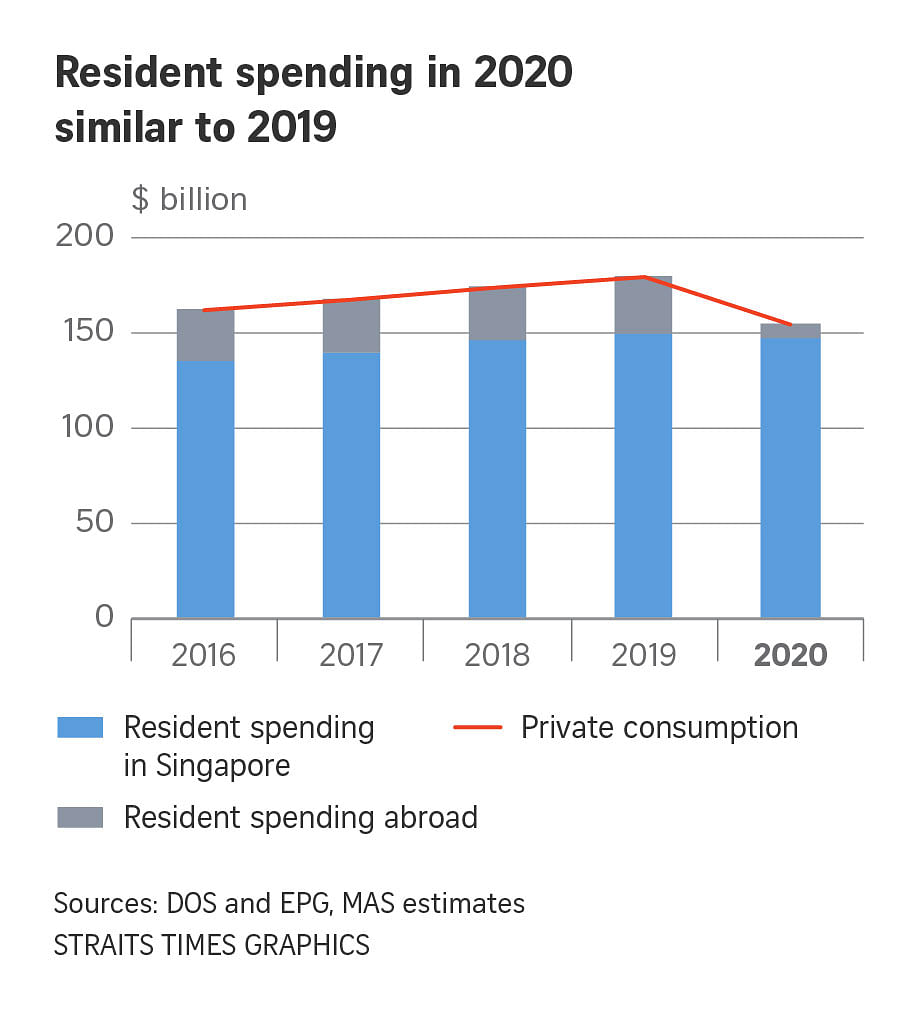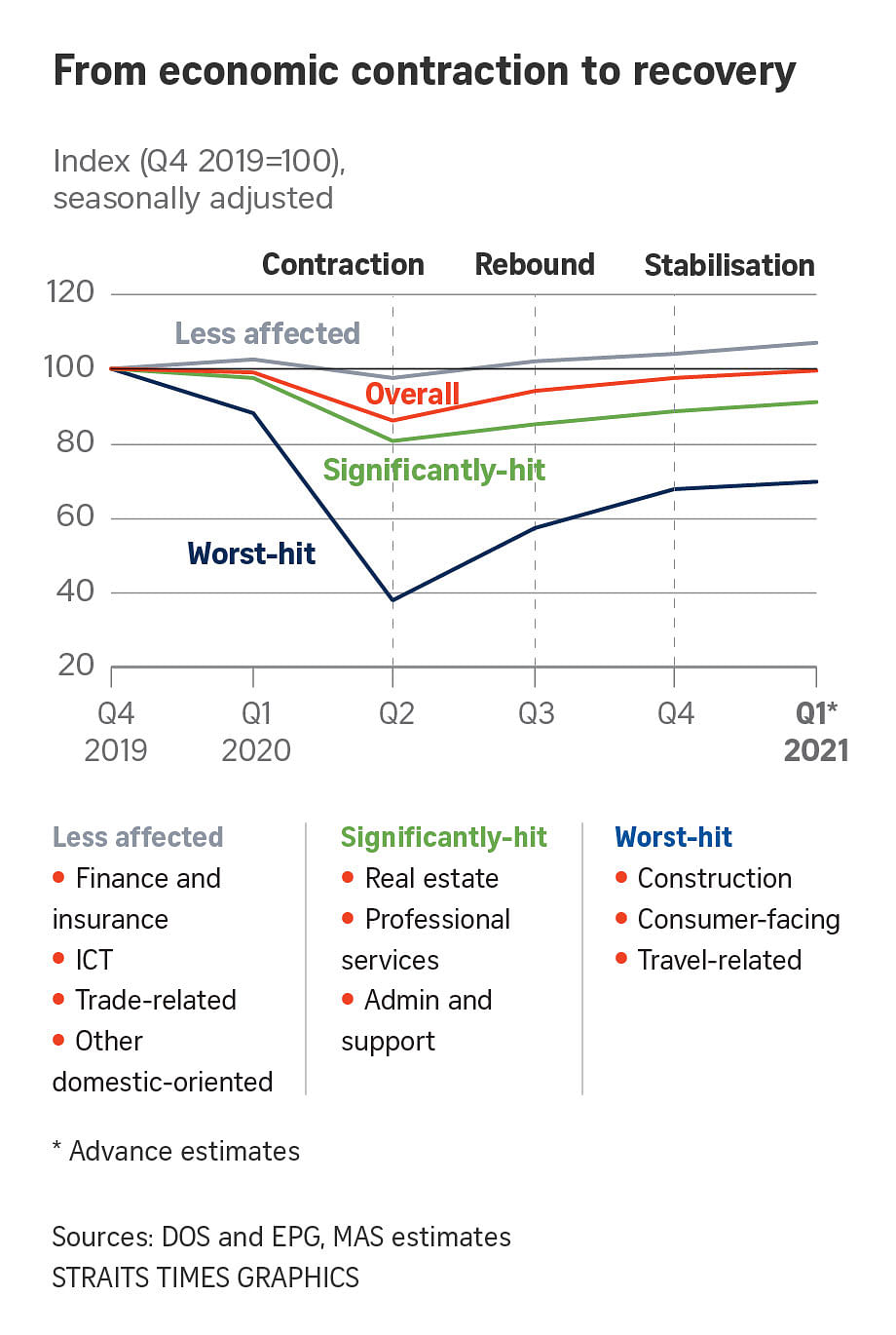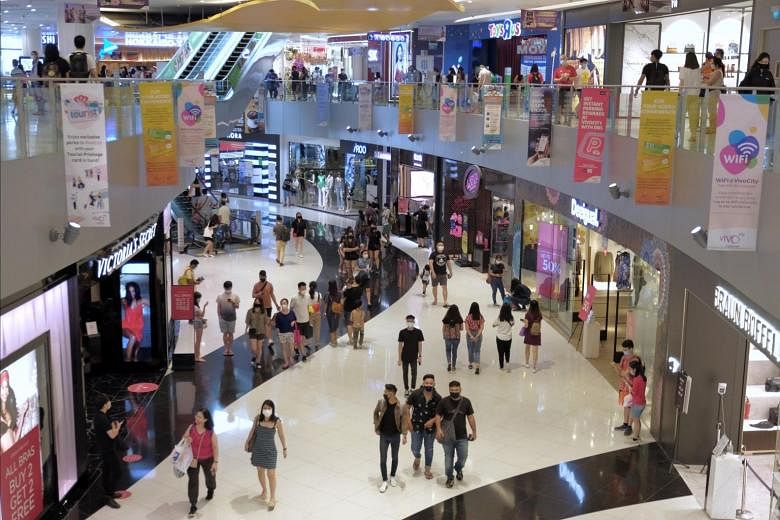SINGAPORE - Consumer spending in Singapore by those residing here was resilient last year and at a similar level to 2019 despite the Covid-19 pandemic.
This was likely because those living here turned to domestic expenditure in the face of global travel restrictions, reflected in the plunge in spending by Singapore residents abroad.
However, private consumption overall remained below the pre-pandemic level as residents increased their savings, the Monetary Authority of Singapore (MAS) said in its biannual macroeconomic review released on Wednesday (April 28).
Government support for incomes in Budget 2020 contributed partly to the 13 per cent increase in Singdollar deposits of resident individuals and non-bank corporates last year, the fastest pace since 2009.
"The rise in saving likely reflects both a precautionary reaction to the increase in economic uncertainty and constraints on households' and firms' ability to make desired purchases due to public health restrictions," MAS noted in its review.
Price increases expected
Both headline and core inflation are expected to rise in the months ahead, reflecting the recovery in global oil prices and low base effects from the fall in prices seen in the second quarter of 2020.
The projected rise in core inflation in the quarters ahead is likely to be more gradual than in the aftermath of the downturn in 2008 to 2009 following the global financial crisis, MAS said.
This is due to several factors, including the slower and more uneven economic recovery this time around and structural factors that existed prior to Covid-19.
Travel-related items, which have historically been a significant part of cyclical swings in core inflation, are also not expected to drive inflation up quickly in this recovery.
Recovering labour market and rising consumer confidence locally should lead to stronger private consumption spending this year, said MAS, adding that this overall improved sentiment and stronger projected expenditure should mean a gradual rise in inflation.
Higher private transport costs, due to factors such as tighter supply of certificates of entitlement and firm demand for cars, will be a significant factor in driving the rise of headline inflation in 2021.
But this pace of increase in inflation should ease in the second half of the year, as external and domestic cost pressures are expected to remain contained.
Singapore's core inflation is expected to average between 0 per cent and 1 per cent for the whole year, while headline inflation is forecast to come in at between 0.5 per cent and 1.5 per cent.

Recovering labour market
Meanwhile, the local labour market should continue to recover at a steady pace in the quarters ahead, MAS said. Business expectation surveys have reported an improvement in the net proportion of firms expecting to hire in the short term, it noted.
But total employment may not recover completely to pre-Covid-19 levels in the near term, as labour demand in parts of the economy has likely shifted structurally lower due to factors such as increase in labour productivity through automation and digitalisation initiatives.
Robust demand for resident workers should lead to a steady decline in the resident unemployment rate over the year and encourage local job seekers to enter or re-enter the labour force, MAS noted.
A rebound in productivity should also temper some of the increase in effective labour costs to businesses, even as wage subsidies that have sharply lowered unit labour costs taper off over the year.
But with stronger-than-expected demand for workers and other conditions, higher labour cost pressures could emerge towards the end of the year and into 2022.



